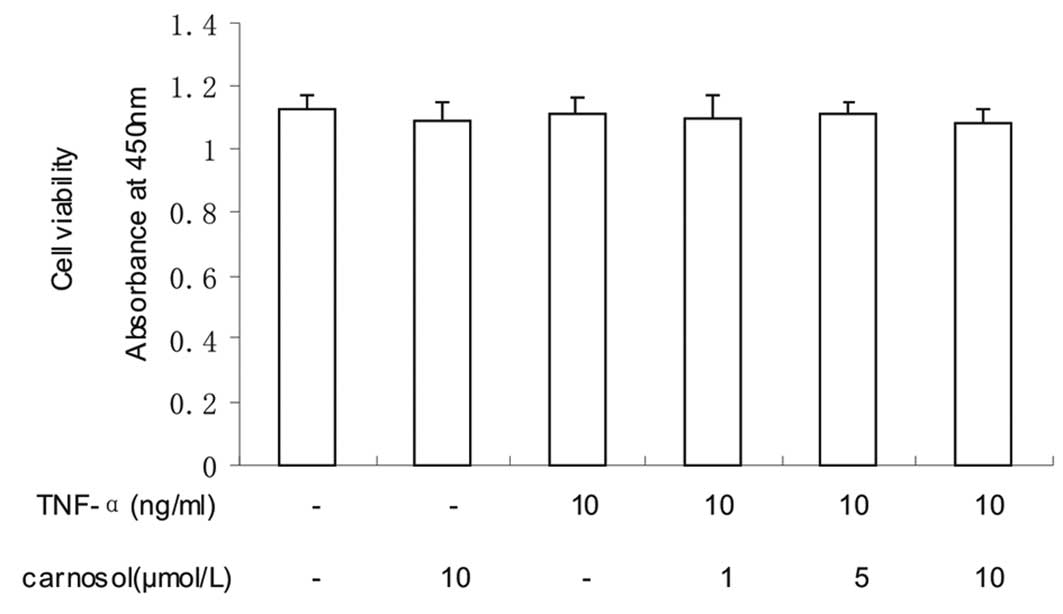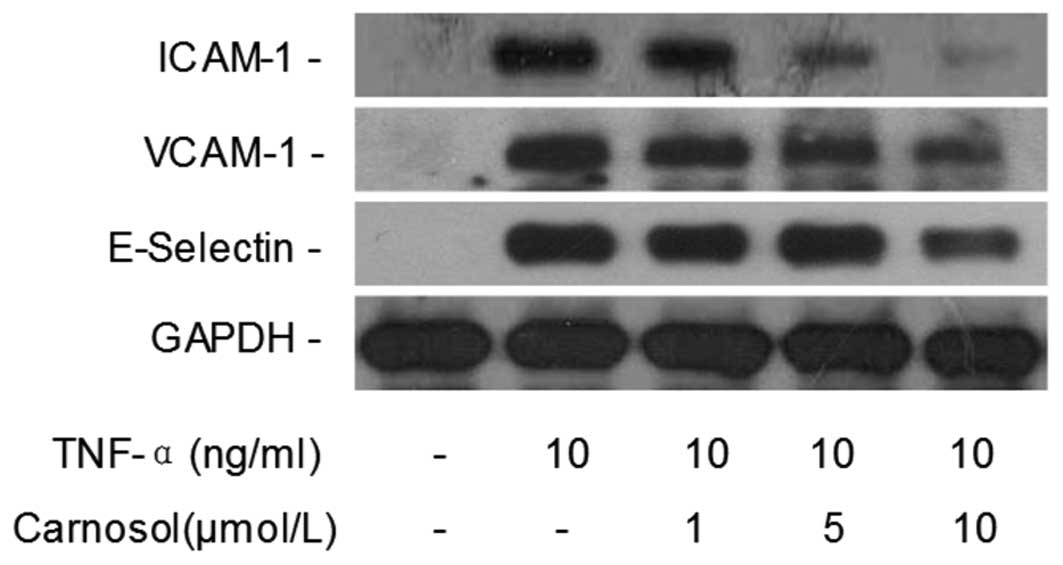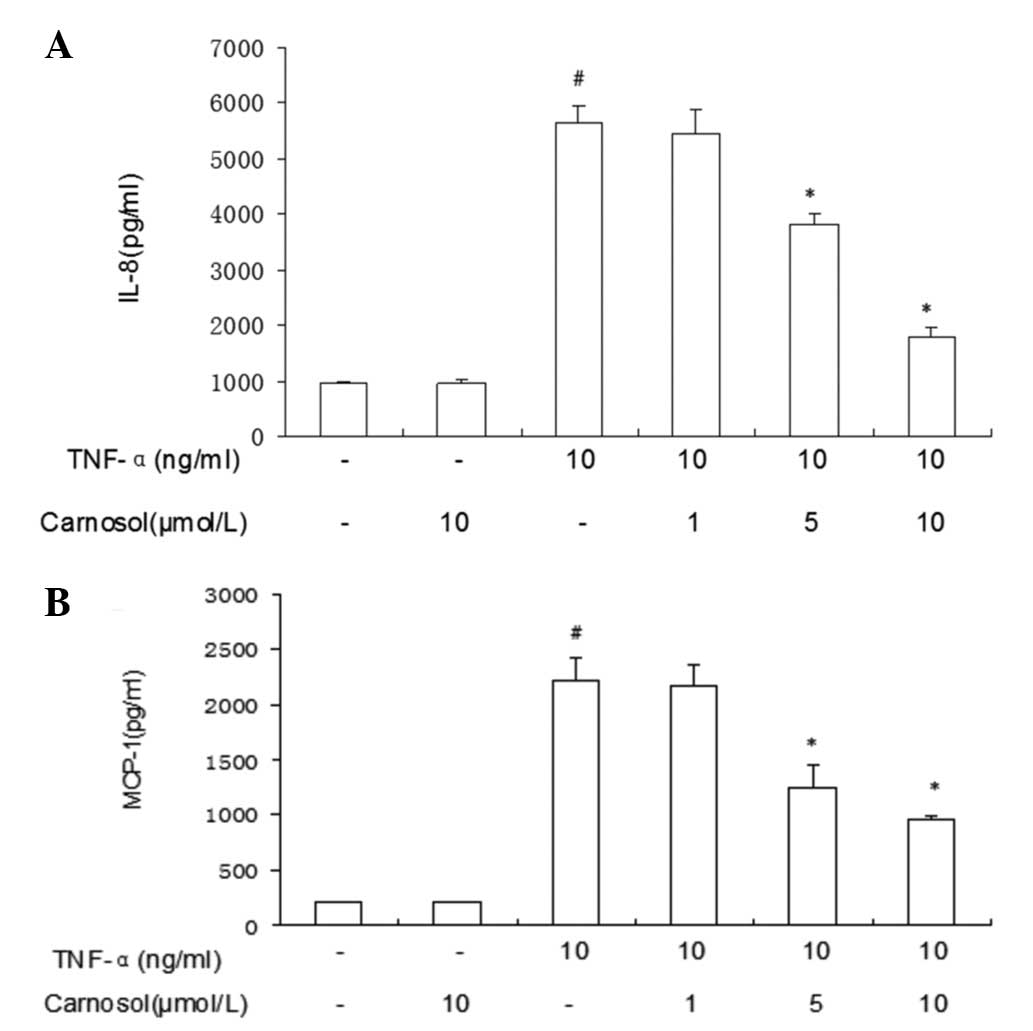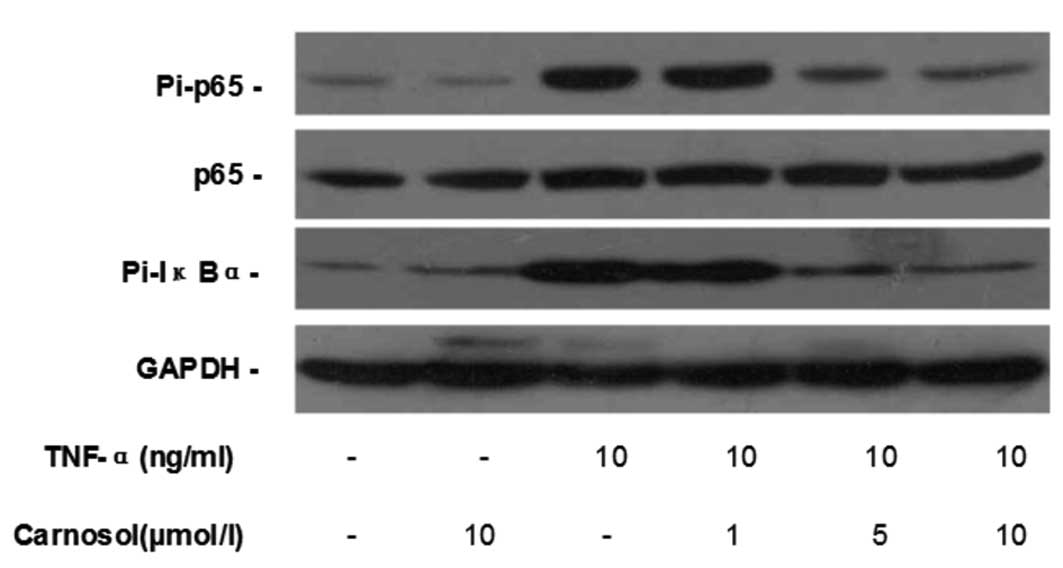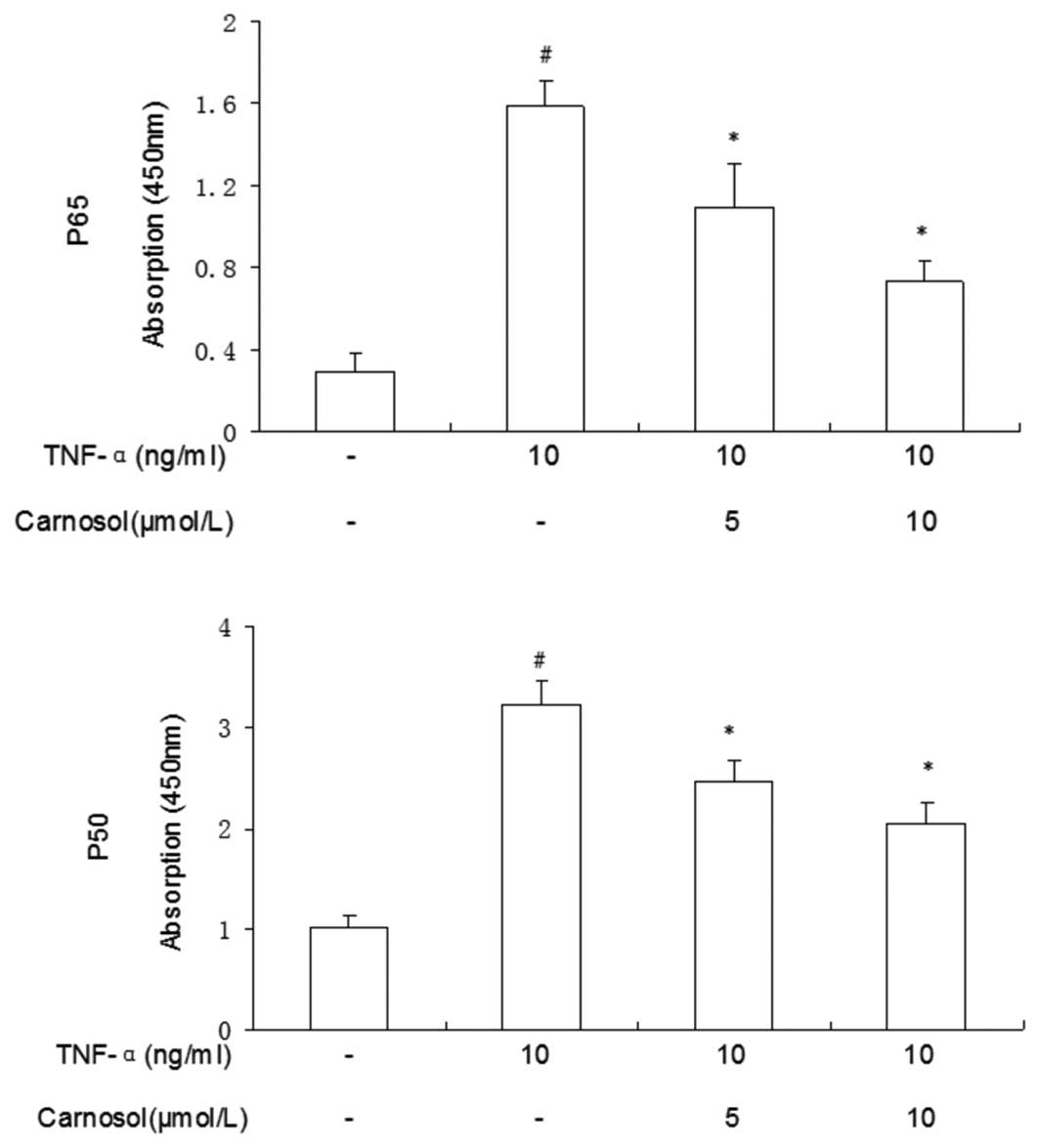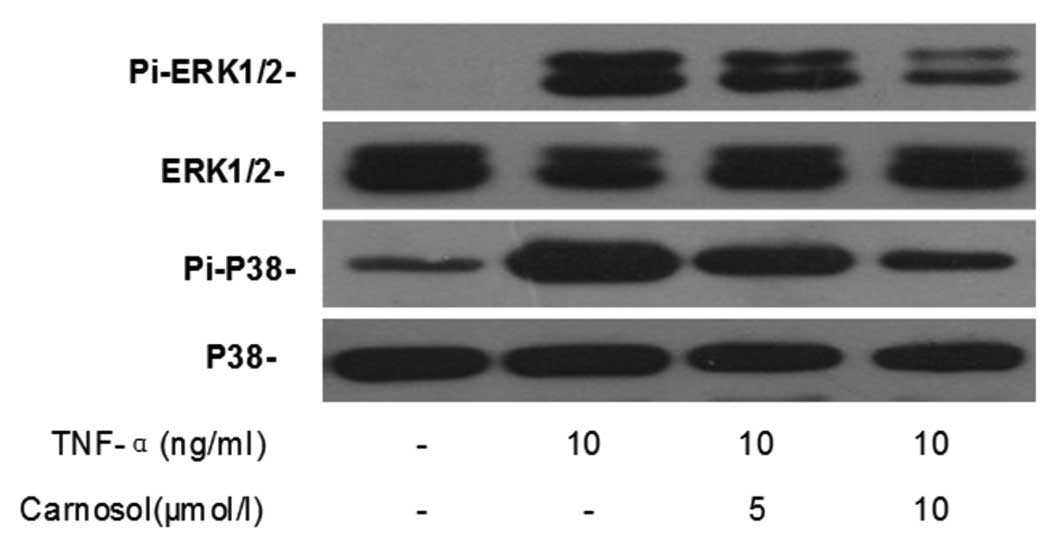|
1
|
Khor B, Gardet A and Xavier RJ: Genetics
and pathogenesis of inflammatory bowel disease. Nature.
474:307–317. 2011. View Article : Google Scholar
|
|
2
|
Danese S: Inflammation and the mucosal
microcirculation in inflammatory bowel disease: the ebb and flow.
Curr Opin Gastroenterol. 23:384–389. 2007. View Article : Google Scholar : PubMed/NCBI
|
|
3
|
Ghosh N, Chaki R and Mandal SC: Inhibition
of selective adhesion molecules in treatment of inflammatory bowel
disease. Int Rev Immunol. 31:410–427. 2012. View Article : Google Scholar : PubMed/NCBI
|
|
4
|
Cheng Q, McKeown SJ, Santos L, Santiago
FS, Khachigian LM, Morand EF and Hickey MJ: Macrophage migration
inhibitory factor increases leukocyte-endothelial interactions in
human endothelial cells via promotion of expression of adhesion
molecules. J Immunol. 185:1238–1247. 2010. View Article : Google Scholar
|
|
5
|
Danese S and Fiocchi C: Etiopathogenesis
of inflammatory bowel diseases. World J Gastroenterol.
12:4807–4812. 2006.PubMed/NCBI
|
|
6
|
Ninomiya K, Matsuda H, Shimoda H, Nishida
N, Kasajima N, Yoshino T, Morikawa T and Yoshikawa M: Carnosic
acid, a new class of lipid absorption inhibitor from sage. Bioorg
Med Chem Lett. 14:1943–6. 2004. View Article : Google Scholar : PubMed/NCBI
|
|
7
|
Weckesser S, Engel K, Simon-Haarhaus B,
Wittmer A, Pelz K and Schempp CM: Screening of plant extracts for
antimicrobial activity against bacteria and yeasts with
dermatological relevance. Phytomedicine. 14:508–516. 2007.
View Article : Google Scholar : PubMed/NCBI
|
|
8
|
Poeckel D, Greiner C, Verhoff M, et al:
Carnosic acid and carnosol potently inhibit human 5-lipoxygenase
and suppress pro-inflammatory responses of stimulated human
polymorphonuclear leukocytes. Biochem Pharmacol. 76:91–97. 2008.
View Article : Google Scholar
|
|
9
|
Kim SJ, Kim JS, Cho HS, Lee HJ, Kim SY,
Kim S, Lee SY and Chun HS: Carnosol, a component of rosemary
(Rosmarinus officinalis L.) protects nigral dopaminergic
neuronal cells. Neuroreport. 17:1729–1733. 2006.PubMed/NCBI
|
|
10
|
Satoh T, Izumi M, Inukai Y, et al:
Carnosic acid protects neuronal HT22 cells through activation of
the antioxidant-responsive element in free carboxylic acid- and
catechol hydroxyl moieties-dependent manners. Neurosci Lett.
434:260–265. 2008. View Article : Google Scholar
|
|
11
|
Johnson JJ, Syed DN, Suh Y, Heren CR,
Saleem M, Siddiqui IA and Mukhtar H: Disruption of androgen and
estrogen receptor activity in prostate cancer by a novel dietary
diterpene carnosol: implications for chemoprevention. Cancer Prev
Res (Phila). 3:1112–1123. 2010. View Article : Google Scholar : PubMed/NCBI
|
|
12
|
Yu YM, Lin CH, Chan HC and Tsai HD:
Carnosic acid reduces cytokine-induced adhesion molecules
expression and monocyte adhesion to endothelial cells. Eur J Nutr.
48:101–106. 2009. View Article : Google Scholar : PubMed/NCBI
|
|
13
|
Lian KC, Chuang JJ, Hsieh CW, Wung BS,
Huang GD, Jian TY and Sun YW: Dual mechanisms of NF-kappaB
inhibition in carnosol-treated endothelial cells. Toxicol Appl
Pharmacol. 245:21–35. 2010. View Article : Google Scholar : PubMed/NCBI
|
|
14
|
Adachi D, Oda T, Yagasaki H, Nakasato K,
Taniguchi T, D’Andrea AD, Asano S and Yamashita T: Heterogeneous
activation of the Fanconi anemia pathway by patient-derived FANCA
mutants. Hum Mol Genet. 11:3125–3134. 2002. View Article : Google Scholar : PubMed/NCBI
|
|
15
|
Scaldaferri F, Sans M, Vetrano S, et al:
Crucial role of the protein C pathway in governing microvascular
inflammation in inflammatory bowel disease. J Clin Invest.
117:1951–1960. 2007. View
Article : Google Scholar : PubMed/NCBI
|
|
16
|
Vestweber D: Adhesion and signaling
molecules controlling the transmigration of leukocytes through
endothelium. Immunol Rev. 218:178–196. 2007. View Article : Google Scholar : PubMed/NCBI
|
|
17
|
Ley K, Laudanna C, Cybulsky MI and
Nourshargh S: Getting to the site of inflammation: the leukocyte
adhesion cascade updated. Nat Rev Immunol. 7:678–689. 2007.
View Article : Google Scholar : PubMed/NCBI
|
|
18
|
Baggiolini M and Loetscher P: Chemokines
in inflammation and immunity. Immunol Today. 21:418–420. 2000.
View Article : Google Scholar : PubMed/NCBI
|
|
19
|
Lehmann JC, Jablonski-Westrich D, Haubold
U, Gutierrez-Ramos JC, Springer T and Hamann A: Overlapping and
selective roles of endothelial intercellular adhesion molecule-1
(ICAM-1) and ICAM-2 in lymphocyte trafficking. J Immunol.
171:2588–2593. 2003. View Article : Google Scholar : PubMed/NCBI
|
|
20
|
Reiss Y and Engelhardt B: T cell
interaction with ICAM-1-deficient endothelium in vitro:
transendothelial migration of different T cell populations is
mediated by endothelial ICAM-1 and ICAM-2. Int Immunol.
11:1527–1539. 1999.PubMed/NCBI
|
|
21
|
Funakoshi T, Yamashita K, Ichikawa N, et
al: A novel NF-kappaB inhibitor, dehydroxymethylepoxyquinomicin,
ameliorates inflammatory colonic injury in mice. J Crohns Colitis.
6:215–225. 2002. View Article : Google Scholar
|
|
22
|
Andresen L, Jørgensen VL, Perner A, Hansen
A, Eugen-Olsen J and Rask-Madsen J: Activation of nuclear factor
kappaB in colonic mucosa from patients with collagenous and
ulcerative colitis. Gut. 54:503–509. 2005. View Article : Google Scholar : PubMed/NCBI
|
|
23
|
Viatour P, Merville MP, Bours V and
Chariot A: Phosphorylation of NF-kappaB and IkappaB proteins:
implications in cancer and inflammation. Trends Biochem Sci.
30:43–52. 2005. View Article : Google Scholar : PubMed/NCBI
|
|
24
|
Mitsuyama K, Suzuki A, Tomiyasu N, et al:
Pro-inflammatory signaling by Jun-N-terminal kinase in inflammatory
bowel disease. Int J Mol Med. 17:449–455. 2006.PubMed/NCBI
|
|
25
|
Scaldaferri F, Sans M, Vetrano S, et al:
The role of MAPK in governing lymphocyte adhesion to and migration
across the microvasculature in inflammatory bowel disease. Eur J
Immunol. 39:290–300. 2009. View Article : Google Scholar : PubMed/NCBI
|
|
26
|
Hollenbach E, Neumann M, Vieth M, Roessner
A, Malfertheiner P and Naumann M: Inhibition of p38 MAP kinase- and
RICK/NF-kappaB-signaling suppresses inflammatory bowel disease.
FASEB J. 18:1550–1552. 2004.PubMed/NCBI
|
|
27
|
Ghosh S and Panaccione R: Anti-adhesion
molecule therapy for inflammatory bowel disease. Therap Adv
Gastroenterol. 3:239–258. 2010. View Article : Google Scholar : PubMed/NCBI
|
|
28
|
Zhang W, Yang AL, Liao J, et al: Soluble
epoxide hydrolase gene deficiency or inhibition attenuates chronic
active inflammatory bowel disease in IL-10(−/−) mice. Dig Dis Sci.
57:2580–2591. 2012.
|















